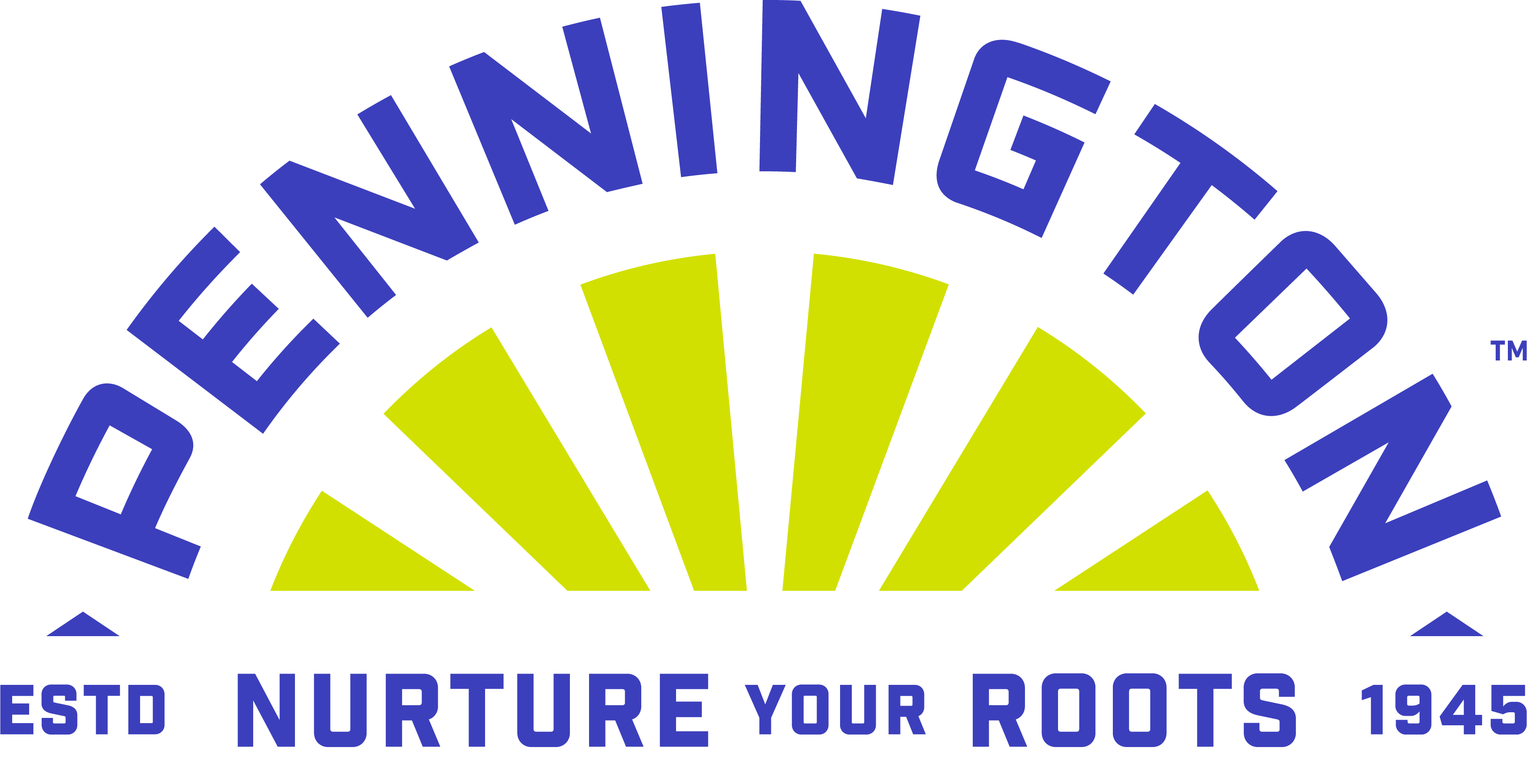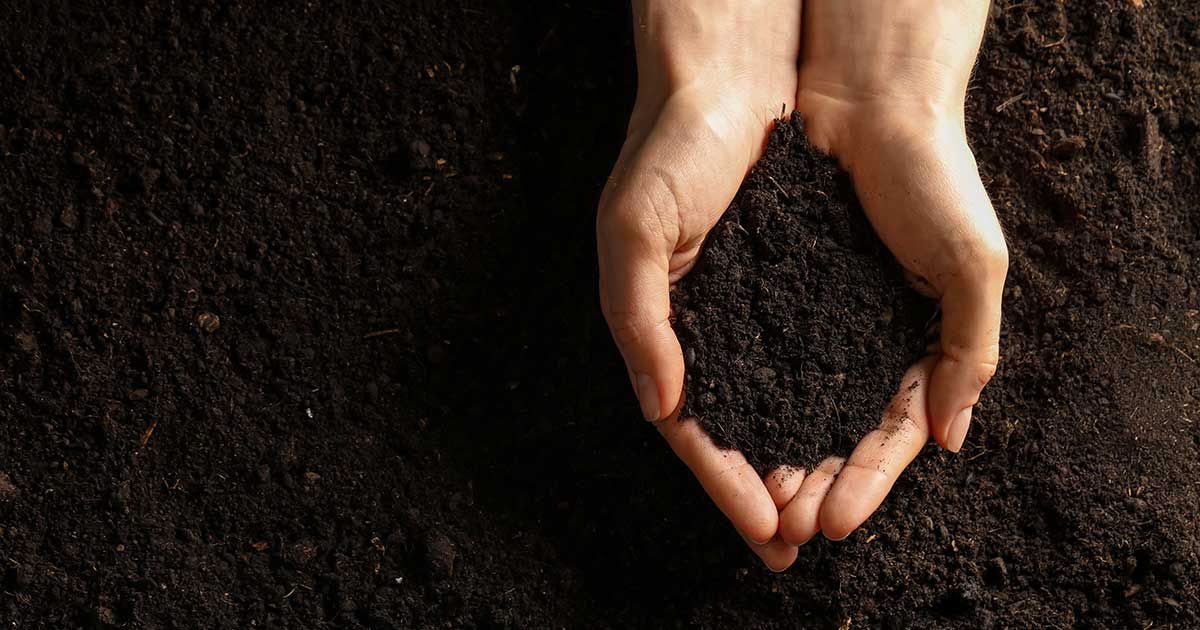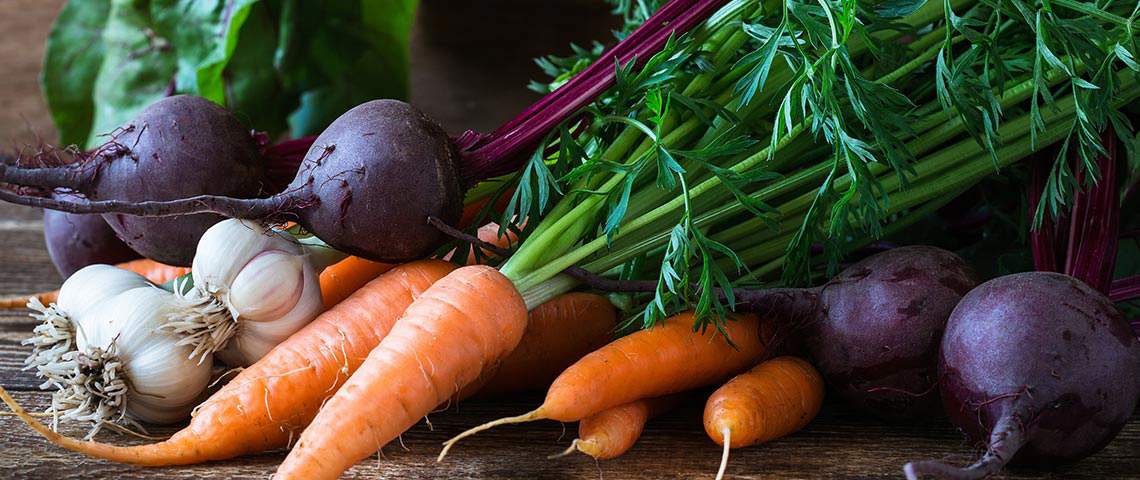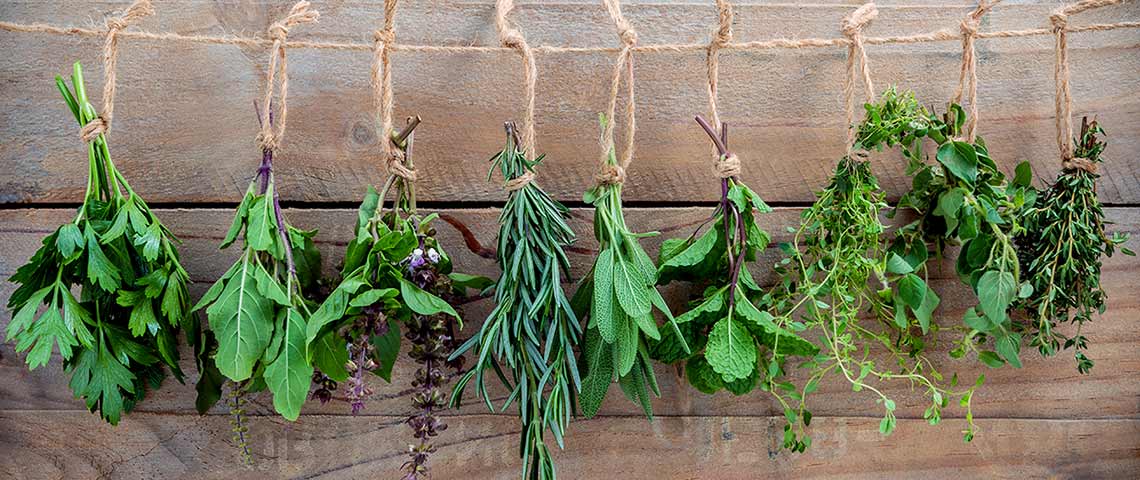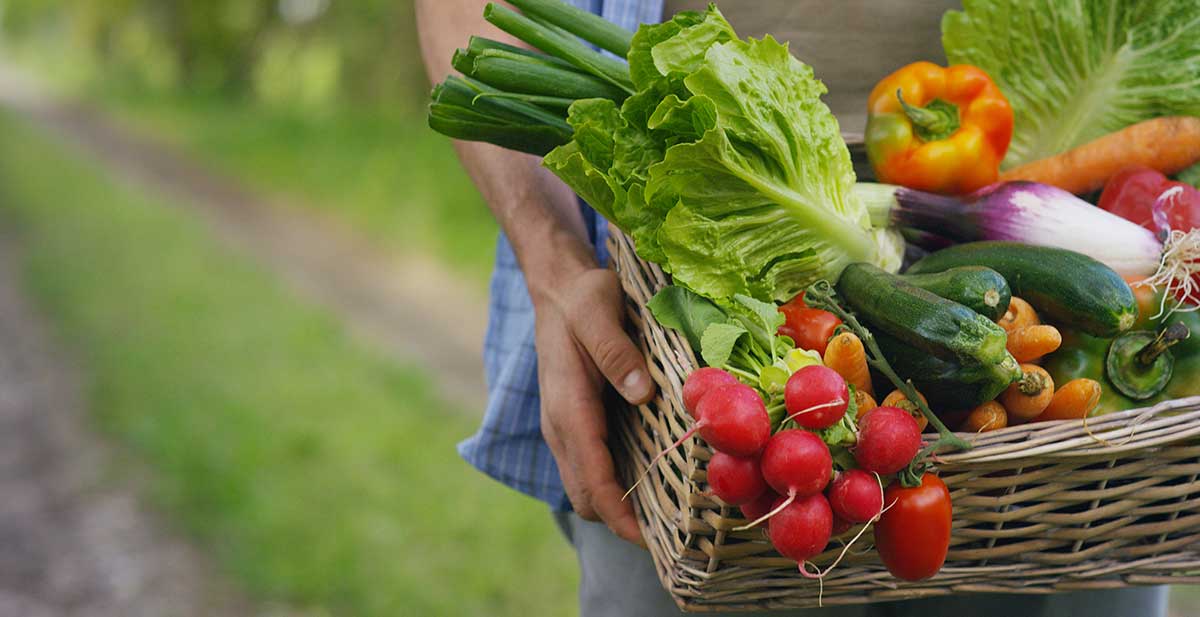How to Nurture Your Soil with Regenerative Gardening
If you chat with growers on your farmers market treks, you've probably heard a lot about regenerative agriculture — a way of growing that focuses on nurturing and restoring soil. For local-food growers focused on organic and natural farming, soil health is key to their success. But you may not know that their soil-regenerating approach can yield the same amazing benefits in your yard and garden. Once you change your perspective and re-imagine your role, it's simple. You can nurture your soil with regenerative gardening.
- How Regenerative Gardening Can Work for You
- How to Integrate Regenerative Gardening in Your Yard
- How Regenerative Gardens and Yards Give Back
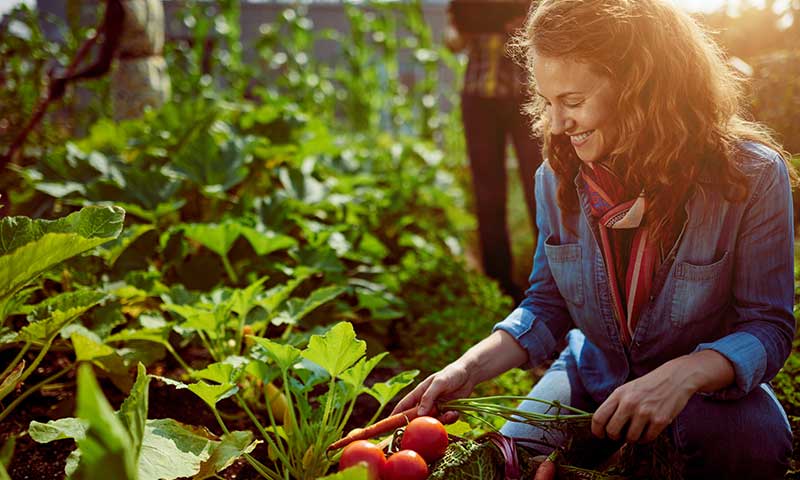
Regenerative agriculture principles used by market farmers work in home gardens, too.
How Regenerative Gardening Can Work for You
Earth-friendly agriculture dates back to the world's earliest farmers, but somewhere along the way, farming practices went a bit off track. Modern farm-to-table growers, devoted to their craft, have resurrected the idea of working with Mother Nature, not against her. When your devotion to your slice of earth runs just as deep — or deeper — the way you garden can have a positive impact on your soil and the environment.
Regenerative gardening, like regenerative agriculture, goes a step beyond sustainability to focus on improving and regenerating soil, not just sustaining it or preventing further loss. When you garden to rejuvenate your soil with regenerative gardening, you can:
- Improve soil health and structure.
- Restore soil nutrients.
- Enhance nutrient availability and uptake.
- Use earth-friendly natural and organic fertilizers.
- Support beneficial microorganisms.
- Create a living soil ecosystem.
- Optimize water use.
When all these goals come together in your garden, good soil yields gorgeous plants and shareable yard-to-table food. When your efforts inspire your neighbors, friends and family to do the same, the impact of your regenerative gardening multiplies exponentially.
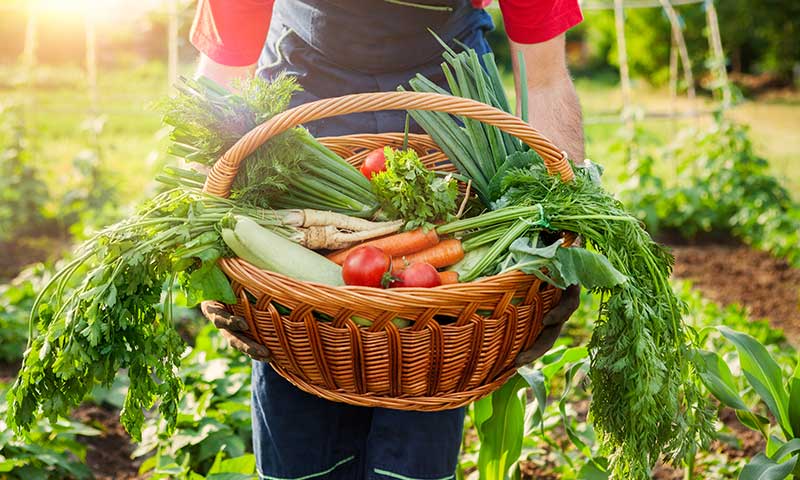
Benefits of regenerative gardening apply to flowers, fruits, vegetables and even lawns.
How Regenerative Gardens and Yards Give Back
Approaches to gardening are as varied as the people who take them, but the focus tends to rest on what to grow. When you integrate regenerative principles — whether you're starting a flower garden or sowing homegrown vegetables from our organic plant seeds — the focus shifts to your garden soil. Most urban and suburban properties had soil trucked away, or the native soil has been depleted of nutrients and life by overuse. That's why going a step beyond "sustaining" your soil is so important.
Before you plant, nurture your soil and get it back on track for the health and productivity it once held. Our Pennington Full Season Potting Mix was designed especially for the task. This premium garden soil mix improves native soil health and structure by revitalizing soil with essential plant nutrients. Added bio-stimulants in this regenerative mix improve plant nutrient uptake, while earthworm castings enhance soil nutrients, and sustainably sourced peat helps retain soil nutrients and help you make the most of the water you use.
With our line of Pennington Rejuvenate Plant Foods, we've re-imagined plant nutrition with a blend of natural and organic ingredients to nurture soil and help plants thrive. These earth-friendly fertilizers for in-ground gardens, containers and indoor houseplants combine essential plant nutrients with earthworm castings, humic acids and beneficial microorganisms such as mycorrhizal fungi and microbes that help strengthen plants against stress and drought and nourish them from the inside out.
Combined with our Pennington Rejuvenate Natural & Organic Garden Soil Mix, these rejuvenating plant foods help improve your soil environment and create a living soil ecosystem — like Mother Nature intended — to regenerate your garden soil and invigorate the plants and crops you grow.
For new gardens and plantings, layer 3 inches of Pennington Rejuvenate Natural & Organic Garden Soil Mix over your garden area. Choose from our Pennington Rejuvenate Plant Food All-Purpose 4-4-4 for balanced all-round nutrition or specialized formulations like our Pennington Rejuvenate Plant Food Tomato & Vegetable 4-5-4 for vegetable gardens, Pennington Rejuvenate Plant Food Rose & Flower 4-6-3 for bountiful blooms, and add fertilizer according to label rates. Then incorporate the soil mix and plant food down into the top 6 inches of soil. That's where most plant roots live.
For individual plantings of trees, shrubs or other plants in your gardens or landscape, plant with equal parts of Pennington Rejuvenate Natural & Organic Garden Soil Mix and your native soil. In future years, keep regenerating your soil and boosting essential plant nutrients. Simply sprinkle Pennington Rejuvenate Plant Food on your garden according to the label instructions and gently scratch it into the soil. Add a layer of Pennington Rejuvenate Natural & Organic Garden Soil Mix, like you'd use an organic compost mulch, and let the earth-friendly ingredients nurture the soil even more.
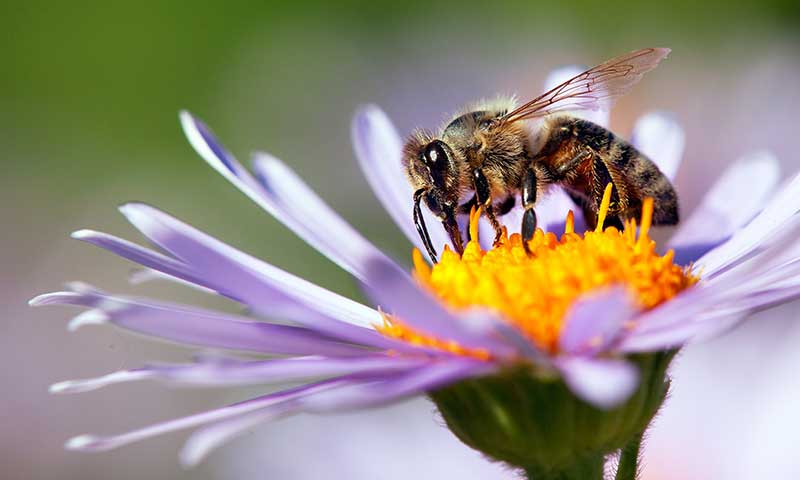
When pollinators visit bio-diverse gardens, expect better veggie quality and yields.
How Regenerative Gardens and Yards Give Back
When your native garden soil is nurtured through regenerative gardening, your yard and garden change from the roots up. Improved soil health and structure, along with enhanced nutrients, create an environment where plants can reach their peak potential. From garden shrubs like gorgeous hydrangeas to tomato plants heavy with fruit to perennial gardens bursting with blooms, well-nurtured soil and earth-friendly plant foods combine for bigger, more bountiful fruits and blooms than you'll ever see from unfed plants.
By creating a living, breathing soil ecosystem in your yard and garden, you help support some of the earth's most beneficial organisms. Mycorrhizal fungi and microbes work in harmony with nature to support soil health, plant life and biodiversity. It's like a personal invitation to pollinating bees, hummingbirds and butterflies essential to the foods we eat and the flowers we enjoy. This regenerative approach includes sustainable lawn alternatives like our water-conserving, self-fertilizing Pennington Clover & Grass Seed Mix that establishes quickly and lasts for years, even on slopes and hills. (And the bees will love you for it.)
While wind takes care of some pollination chores, most common vegetables and fruits rely on pollinators. With pollinators visiting blooms on your vegetables and fruit, improved pollination and cross-pollination happen. That leads to bigger, better fruits and veggies and more abundant harvests all around. So not only will pollinators and your yard's thriving soil ecosystem thank you, your friends and family will thank you, too.
Here at Pennington, we believe that every yard and garden — and the people who love them — can make a difference. With Pennington Rejuvenate products, we're working to help you impact your world with every plant and crop you grow. We've been helping people make the world a better, more beautiful place since 1945. Now we're here to help you. Have a question or a comment? We'd love to hear it. Let us help you nurture your roots.
Always read product labels and follow instructions carefully.
